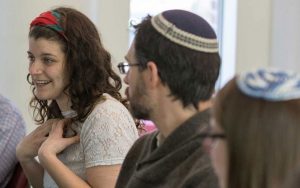Holidays Uprooting Evil and Lifting Up Holiness on Shabbat and Purim


In trying to get into Purim, and writing this vort, I looked through some books and was struck by this connection that various Hasidic masters make between Purim and Shabbat. In fact, the Netivot Shalom has an entire section of his book titled “Purim v’Shabbat.” Besides the fact that they are both said to be holy times that stick around in Messianic days, the Netivot Shalom also picks up on the fact that the word Zachor (remember) is key. He writes: Remember the Shabbat day and keep it holy. Remember what Amalek did to you. The wholeness of serving Hashem comes by means of these two remembrances together. Remembering what Amalek did to you, that is the matter of uprooting evil. Remembering the Shabbat day and make it holy, that is the matter of lifting good things up to a higher level.
Purely by the sun setting on Friday night, according to the Netivot Shalom, we are given the energy to see the beauty in the world, and lift up the mundane to a higher level. On Purim, it’s totally different. We read a Megillah with no mention of God, we read about the Jews almost being extinguished, and we read about the massacre of tens of thousands of our enemies. If Purim is about uprooting evil, how do we do that? With play. With costumes. With joy and laughter. How else are we supposed to confuse the evil forces of the world?
Last night, when I was teaching my kindergarden and 1st graders, I finally really understood why I need to break out my costume (which is amazing, you’ll have to wait until Sunday to see it) to fight my very justified depression and despair at the state of the world to celebrate Purim this year. They were playing with their little homemade puppet theaters and popsicle stick puppets of Ahashverosh, Esther, Haman, and Mordechai, smashing Haman on the table and laughing, their little bodies many many times bigger than the itty bitty haman. On Purim, we mock the oppressor–both the external and internal–and through play, we heal, lifting it up toward holiness.
Chag sameach, shabbat shalom.
Hayley Goldstein is a student at the Rabbinical School of Hebrew College.

